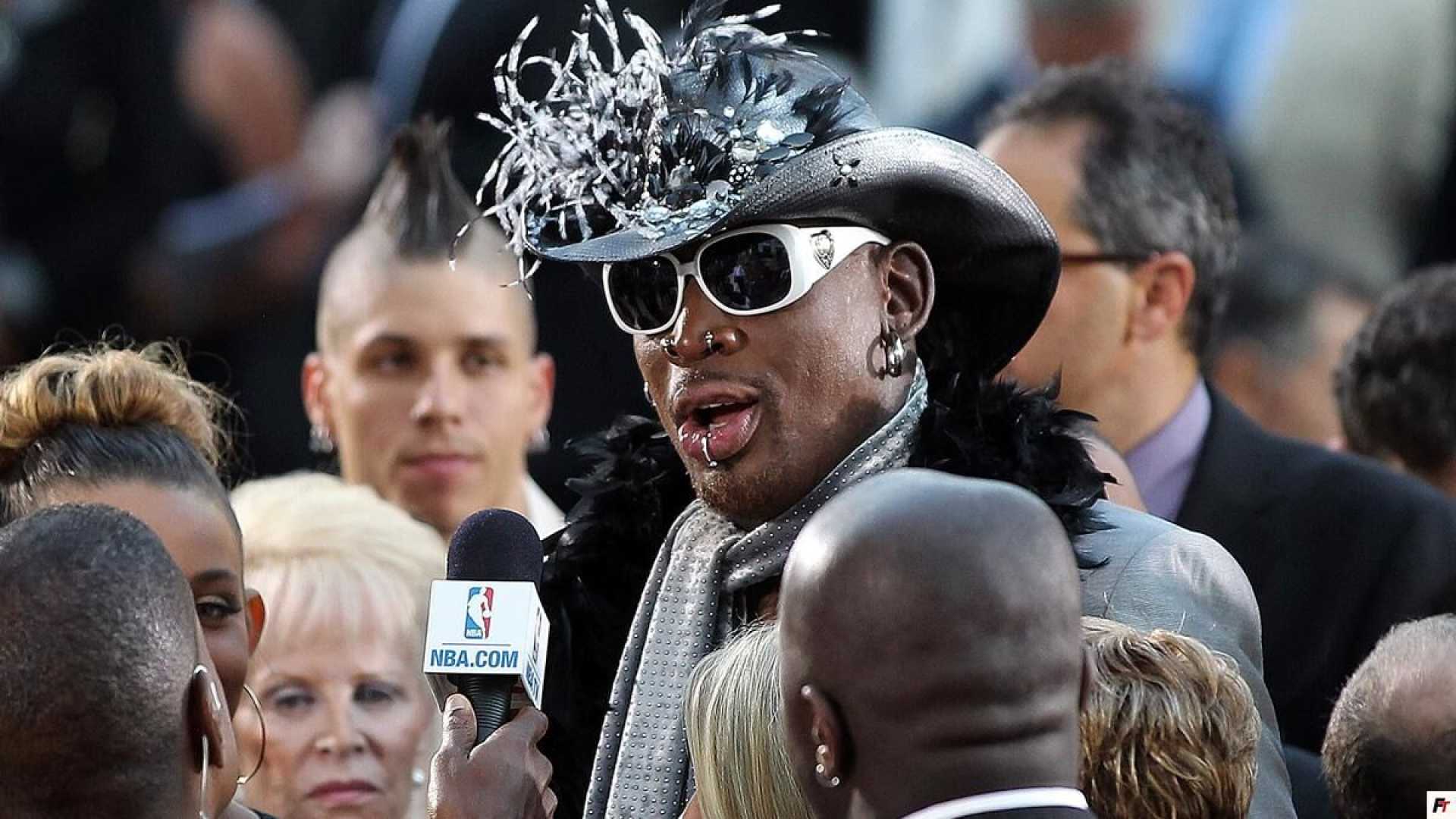Sports
Dennis Rodman’s Impact on LGBTQ+ Acceptance and Expression in Sports

CHICAGO, IL — In 1996, Dennis Rodman emerged not just as a dominant basketball player, but as a cultural icon, reshaping how sports and personal expression intertwine. With a vibrant flair for self-presentation, Rodman challenged traditional norms during his time with the Chicago Bulls, influencing queer culture in profound ways.
When Leslie Feinberg released her book, Transgender Warriors, in the spring of 1996, she included a subtitle that would soon need revision. The change to highlight Rodman’s unique identity came after his explosive introduction to the mainstream. ‘I originally subtitled this book… to convey the sweep of time and cultures in my work,’ Feinberg wrote in her 1996 afterword. ‘But that was before Dennis Rodman… proudly came out as a cross-dresser.’
Rodman’s first season with the Bulls was a turning point. He embraced Chicago’s vibrant LGBTQ+ community, feeling free to express himself without restraint. ‘I felt wanted in Chicago from the beginning,’ he noted in an interview. ‘They weren’t interested in taming me.’ His edgy hairstyles and unique tattoos pushed the boundaries of how athletes could present themselves.
The tipping point came when Sports Illustrated featured Rodman on its cover in May 1995. His attire—a tank top, hot pants, and a dog collar—shocked and captivated audiences, sparking conversations about gender identity in the sports realm. ‘Everybody visualizes being gay—they think, ‘Should I do it or not?” Rodman shared, breaking down barriers with his open discussions about sexuality.
Despite pressure and criticism, Rodman thrived in Chicago. Bulls head coach Phil Jackson embraced his unconventional behaviors, describing his unique role as a ‘sacred clown’—helping to redefine sports culture. ‘Dennis loves these comparisons,’ Jackson noted, signaling a shift in how athletes could express themselves.
This acceptance translated into incredible on-court performance as Rodman led the league in rebounding for subsequent years and became a pop culture figure. Rodman’s antics, from eccentric hairstyles to outrageous clothing, garnered a broad fanbase, including kids who idolized his expressed individuality. ‘As a young, closeted trans person, seeing someone who was very fully himself… that was definitely a big moment growing up,’ said Parker Molloy, a trans journalist who grew up emulating Rodman’s boldness.
Rodman’s influence resonated beyond basketball. During the 1996 finals, he used his platform to bring awareness to AIDS by dying an AIDS ribbon into his hair. ‘Let all the AIDS victims know they’re recognized and respected by Dennis Rodman,’ he stated. His visibility and openness challenged stereotypes, presenting a gift of identity exploration to marginalized communities.
Fast forward to today, Rodman’s legacy still sparks discussions around LGBTQ+ acceptance in sports. While not all athletes embraced Rodman’s message evenly, the effects of his individuality are apparent. ‘He’s going to go wacko every now and then. We’ve come to live with that,’ Michael Jordan remarked regarding Rodman’s eccentricities. With Rodman’s help, Chicago’s rich LGBTQ+ history influenced a generation of athletes to be themselves, paving the way for broader acceptance in sports.
Rodman continues to champion the LGBTQ+ community, attending drag events and maintaining visibility. As times change, the youth still look up to figures like Rodman, who embody the spirit of self-expression.












